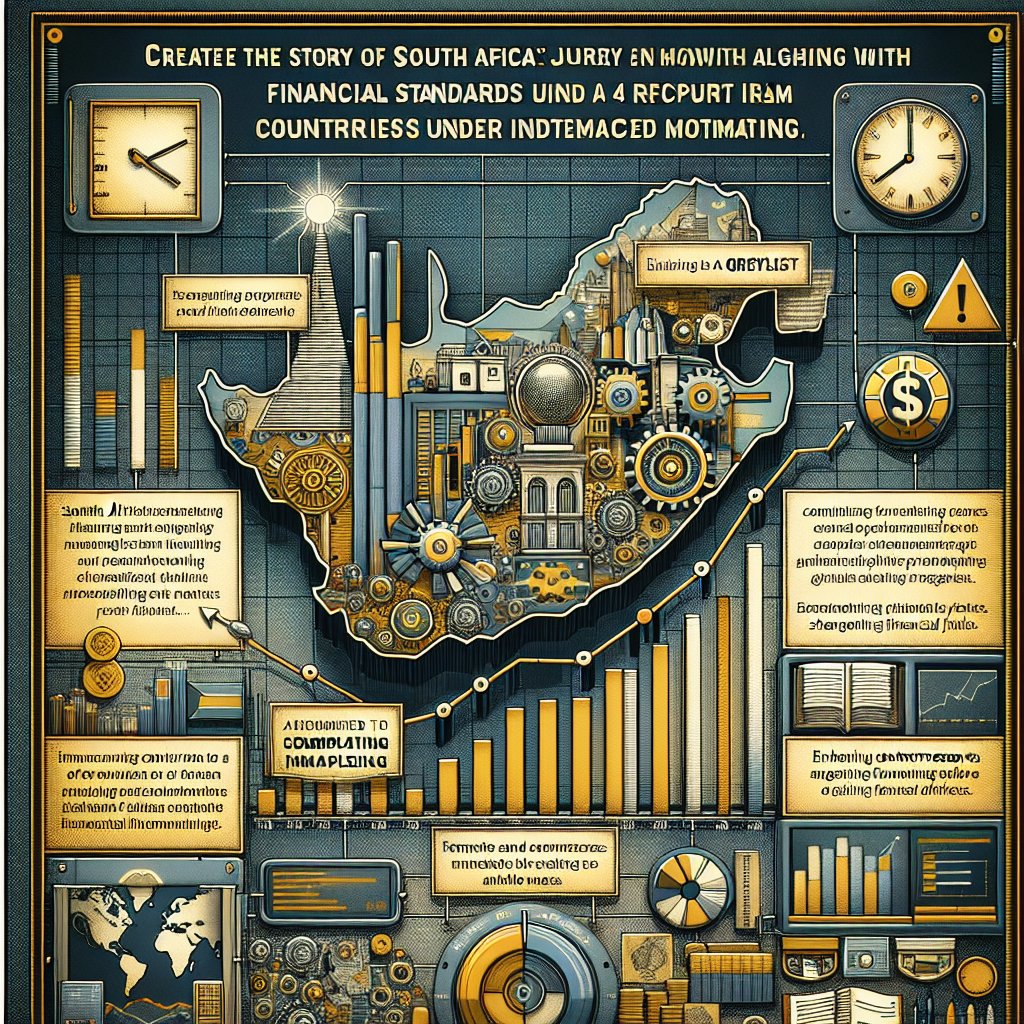Image created by AI
South Africa's Significant Progress on FATF Greylist Compliance Amid Two Critical Challenges
South Africa has demonstrated noteworthy advancement in the alignment with the Financial Action Task Force's (FATF) stringent global standards to combat financial crimes. Marking considerable improvements, the country shows positive trajectory towards extricating itself from the greylist—a term designated for countries under increased monitoring by the FATF for deficiencies in their anti-money laundering (AML) and counter-financing of terrorism (CFT) regimes.
The recent feedback by Francis Marais, head of product at Morningstar South Africa, indicates that South Africa adheres, to some degree, with every one of the FATF's 40 recommendations, a commendable feat considering the complexities involved in transforming financial oversight mechanisms. The October 2021 assessment painted a challenging picture with five areas of non-compliance and 15 of partial compliance out of the 40 oversight areas.
Since landing on the greylist on February 24, 2023, South African authorities were propelled into an intensified reform drive. Fortunately, the FATF's latest check-up in October 2023 illustrates a stark improvement. The number of non-compliance areas plummeted to zero while partial compliance concerns have tapered to just five. This signifies a promising shift in the nation's commitment to rooting out financial crimes and fortifying its financial integrity.
Graphical representations elucidate South Africa's forward movement. The "distribution" shifted towards the desirable end of the compliance spectrum, much to the country’s relief. Yet, despite major strides, two critical areas—R.2, which deals with inter-agency coordination for AML legislation, and R.32, which covers efforts to halt terror financing—remain somewhat resistant to progress.
The FATF has accentuated the imperative need for cohesive cooperation and information sharing among government policy makers, financial intelligence units, law enforcement, supervisory bodies, and other relevant authorities. Furthermore, there is an urgent call for tighter controls on the movement of cash across South African borders to hinder it from becoming a haven for criminal financial transits.
While commendation is due for the headway thus far, the crux lies in the urgency of addressing these two pivotal recommendations. Marais underscores the exigency to remedy them, though the political milieu influenced by the upcoming general election in May might delay expedited action.
The prognosis for South Africa's departure from the greylist appears optimistic. However, as noted by industry experts, the effectiveness of AML/CFT measures is a continuous process of enhancement and adaptation, in stride with an ever-evolving landscape of financial crime methodologies. The South African government and respective authorities are tasked with a race against time to strategize and roll out necessary legislative and operational reforms to counter and prevent illicit financial flows within and across its borders. In doing so, not only would the government fortify the nation's economic integrity but also pave the way for a stronger, more resilient financial system.





